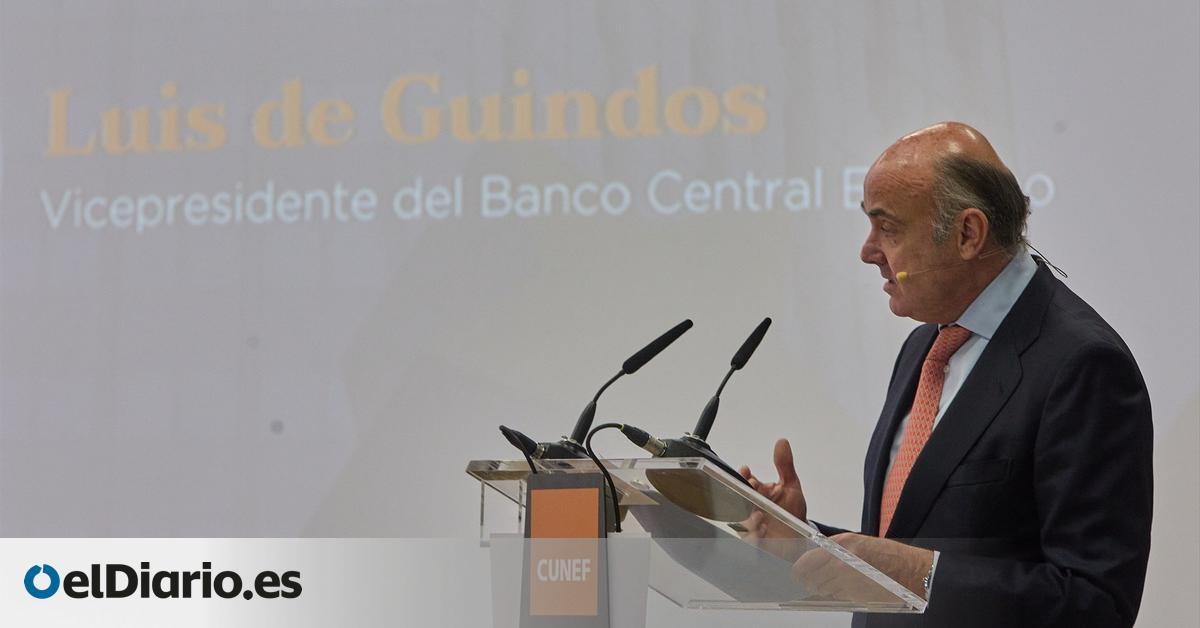
The minutes of the last meeting of the governing council of the European Central Bank (ECB) include the first time that doubts have arisen among its members [que conforman el principal órgano decisorio de la institución] about the aggressiveness of raising official interest rates to fight inflation. A strategy that seeks to “cool” the economy, and damage household consumption or the investment capacity of companies. And that assumes the risk of causing an economic recession and an increase in unemployment.
Tears, “monetary terrorism” and not a mention of the conviction for corruption in the interview with Lagarde
Further
The document, published this Thursday, narrates the discussion on the decision at the beginning of February to raise the official “price of money” by 0.5 points, up to 3%. The minutes state that “although there was broad agreement that it was necessary to continue with this tightening of monetary policy [que arrancó en julio de 2022 desde el 0%]reservations were expressed about the proposed communication of an increase” in the reference interest rates of another 0.5 points at the meeting on March 16.
“It was noted that policy rates were approaching a level where caution was needed to ensure that monetary policy did not tighten excessively,” the minutes verbatim attest.
This same Thursday, an exclusive from the economic information agency Reuters revealed one of the main reasons that would have supported these doubts. The economists and the members of the ECB’s governing council handle internal data (which they have not made public) that show that companies are taking advantage of inflation, while families suffer historical damage, and double: due to the impact of the biggest price rises in 40 years and due to the increase in the cost of mortgages and other loans.
“The data collected in more than two dozen slides presented to the 26 members of the governing council [los gobernadores de los bancos centrales de cada país de la eurozona más el comité ejecutivo (Christine Lagarde, Luis de Guindos, Isabel Schnabel y compañía)] reflect that companies’ profit margins have increased rather than decreased, as might be expected when costs [principalmente la energía] they increase so strongly ”, says Reuters.
In other words, companies have transferred on average -especially the large ones and, specifically, the energy sector, industry or banking- the increase in costs to sales prices, improving their profits and bearing most of the blow of inflation on consumers and wages. This strategy feeds back inflation.
This conclusion is very uncomfortable for the ECB and that would explain why it is internal, as indicated by Reuters. It’s annoying because inflation fueled by corporate profits would tend to correct itself as companies are forced to compete. In this way, they would reduce sales prices (and with all the more reason if energy falls, as is currently happening). Thus, the inflation crisis becomes “a very different crisis” than the threat of a spiral of prices and wages.
A risk that, however, the institution has been warning about for months, from its president Christine Lagarde in the interview she gave to the Antena 3 program ‘Espejo Público’ this Thursday, to its vice president Luis de Guindos in a conference at the university private CUNEF, in Madrid, this Friday.
Improved margins in Spain
But these uncomfortable figures for the ECB are already very difficult to ignore. In the case of Spain, for example, business profits grew by 30% and wages by barely 4%, according to statistics from the Tax Agency. And both the Bank of Spain and many other sources highlight an improvement in margins.
This is how benefits and wages have contributed to inflation
Contributions to the rate of change of the GDP deflator (domestic inflation, excluding import prices) in different years
Source: UCM, based on INE data
“The most recent national accounting data [del INE] suggest that the dynamism that business margins had shown up to the third quarter –mainly to recover pre-pandemic levels– would have continued in the fourth quarter of 2022 [en nuestro país]which would place these margins above the levels observed at the end of 2019 [de media]”, assures the Bank of Spain.
The professor of Applied Economics at the UCM, Rafael Myro, has an impact on this issue, also according to the national accounting data from the INE. “Increased profits [de las empresas] almost completely explains the increase in the GDP deflator in 2022 [la inflación interna, que excluye las importaciones, lo que se compra fuera de España]”, explains this expert.
“After the year 2020, marked by the pandemic, in which labor costs (salaries) increased significantly, mainly due to the decrease in labor productivity, while business profits were drastically reduced. These began to recover already in the last quarter of 2021, a year in which indirect taxes were increased considerably to recover the pre-pandemic level. But it was in 2022 when company profits experienced a decisive increase, contributing to accelerating inflation, ”he adds.
“The extractive activities and energy and banking sectors have also stood out for the rise in their profits. Some services, such as leisure and hospitality, have also experienced a recovery in their margins, but they suffered more during the pandemic”, continues Rafael Myro.
Good start to 2023 for companies
These conclusions coincide with the latest data from the PMI leading indices for industry and services in our country. According to this indicator, activity in the manufacturing sectors grew in February for the first time in eight months due to the resistance of demand, thanks to the strength of the labor market, and due to the decongestion of global trade supply chains.
For its part, the PMI index of the services sector added four consecutive months of rise, marking expansion of activity. These indicators are prepared by S&P Global for each month based on surveys of nearly 400 companies in each branch.
“According to the companies surveyed, the main factor behind these results was a sustained strengthening in demand conditions,” explains Laura Denman, economist at S&P Global Market Intelligence.
“Inflation rates for prices paid and prices received returned to historical highs in February and, although weaker than the survey peaks recorded in March of last year, have shown only slight signs of easing. Despite this, companies maintained a very optimistic outlook for commercial activity over the next twelve months, and the degree of confidence was the strongest in a year,” concludes this expert.
Source: www.eldiario.es

